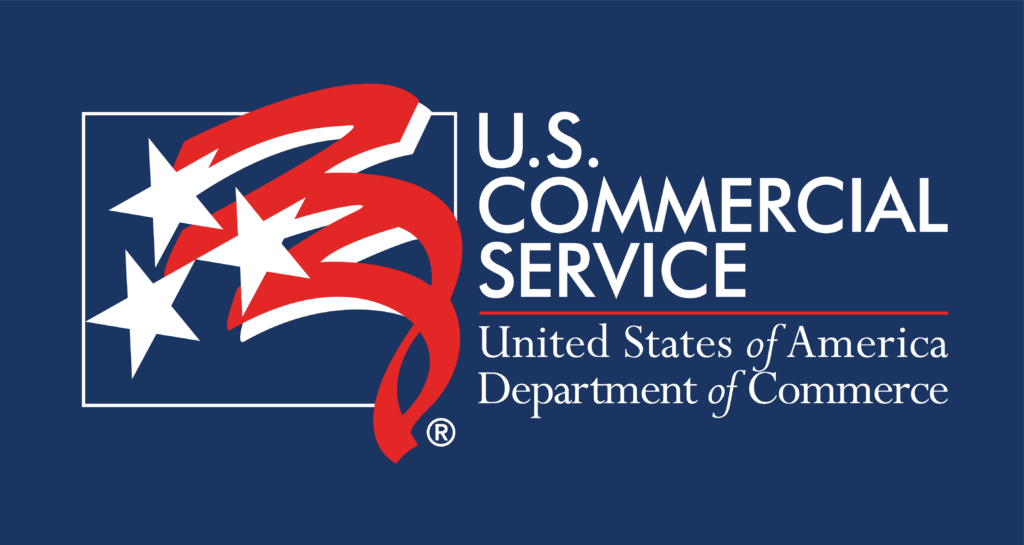
U.S. Commercial Service Recruiting Businesses for Nov. 17-22 conference and trade mission.
The U.S. Commercial Service of the Department of Commerce’s International Trade Administration (ITA) is leading a Global Diversity Export Initiative conference and trade mission to the Caribbean region from November 17-22, 2024. The mission will connect business leaders, owners, and entrepreneurs from underserved communities with potential market opportunities. Conference registration is open now and trade mission applications are being accepted through the end of September. Jennifer Kane-Zabolotskaya, Regional Senior Commercial Officer for the Caribbean Region at the U.S. Embassy in Santo Domingo, Dominican Republic spotlights the trade mission and growing market opportunities for U.S. exporters below.
Q: Why should U.S. businesses consider doing business or expanding their presence in the Caribbean?
The Caribbean is the third-largest market in Latin America for U.S. exporters and represents 25 markets of 20 million people. Behind only Brazil and Mexico, the Caribbean is the third-largest export market for U.S. manufactured goods in Latin America, providing a solid platform for businesses of all sizes and from all sectors.
Another advantage is the Caribbean region’s proximity, making it a natural commercial partner and logistics hub for the United States, tied closely together by geography, history, and culture. While citizens of the Dominican Republic primarily speak Spanish, English is the predominant language in most of the region. The Caribbean also benefits from the regional integration of 15 nations and dependencies through CARICOM, headquartered in Guyana, an organization that aims to promote regional economic integration, foreign policy coordination, human and social development, and security.
What’s more, the Dominican Republic-Central America-United States Free Trade Agreement (CAFTA-DR), which came into effect nearly 20 years ago, provides low- or no-tariff trading for U.S. companies.
Q: What are some key industry export opportunities?
Opportunities in the Caribbean region for U.S. companies are diverse and wide-ranging across industries and sectors. Automotive parts and services, consumer goods, construction equipment and building supplies, hospitality equipment, machinery, medical equipment and tourism and related construction all present good prospects for U.S. exporters. We’re also seeing robust growth in the areas of information technology, maritime services, energy, waste management and water treatment technologies, among others.
Q: What are some advantages for U.S. businesses in joining the conference and trade mission?
Trade isn’t simply about exports and imports: transactions can’t happen without trust, and trade missions are an important platform to build and facilitate relationships between individuals. This is especially important when doing business in the Caribbean. Whether in-person or virtual, there is no substitute for face-to-face interactions.
U.S. companies attending the Santo Domingo conference will learn about the region’s economic outlook and current business opportunities. In addition, firms that participate in the mission will partake in business-to-business (B2B) matchmaking meetings with pre-screened potential buyers, agents, distributors, or other partners in up to two stops, including the Dominican Republic, Barbados and the Eastern Caribbean, Guyana, Jamaica, Suriname, and the Bahamas, and Trinidad and Tobago. The conference will also highlight Haiti and Belize.
We customize the meetings for individual U.S. participants to help match their products or services with the needs of potential partners or buyers. U.S. participants will also engage in one-on-one meetings with U.S. diplomats and industry specialists from nine countries to learn the latest trends and market information for entering or expanding their businesses in the Caribbean,
Another advantage of trade mission participation is ongoing support before, during, and after the mission from U.S. Commercial Service trade professionals in partnership with State Department Economic Officers and the U.S. Commercial Service’s domestic network of 106 offices.
Q: How is the Caribbean market for small and medium-sized U.S. businesses, including minority-owned businesses?
In both the United States and the Caribbean, small and medium-sized enterprises (SMEs) account for the vast majority of all businesses and are the engine of our respective economies. While not limited to, most of the U.S. companies on the mission will be SMEs. For U.S. mission participants and potential Caribbean partners alike, this trade mission offers the unique advantage of building longstanding, person-to-person relationships. The Caribbean boasts a diverse business community with a strong presence of minority entrepreneurs.
Q: Do U.S. firms have any competitive advantages vs. foreign competition when entering the Caribbean market?
U.S. goods and services are well regarded across the Caribbean region. “Made in the U.S.A.” is synonymous with quality and high performance. In addition, U.S. companies have an excellent worldwide reputation for customer service, particularly after-sale, which is highly valued.
The Dominican Republic often serves as a springboard for U.S. exports to the greater Caribbean region. A major benefit for U.S. companies is the CAFTA-DR (Dominican Republic-Central America FTA) which ensures that most U.S. manufactured goods enter the Dominican Republic duty-free. In addition to tariff reduction, CAFTA-DR also liberalizes the services sectors and strengthens protections for U.S. investments, patents, trademarks, and trade secrets in the Dominican Republic.
In addition, the U.S. and Dominican Republic signed a joint statement of intent in April 2024 for the Accelerated Patent Grant (APG) which provides an expedited process for obtaining a patent in the Dominican Republic based on a U.S. patent, allowing for more efficient market access.
Q: What are some of the challenges that U.S. firms face in doing business in the Caribbean? How can they best prepare ahead of joining the mission?
Challenges to doing business can vary depending on the specific country. Among these are concerns over the lack of procurement transparency, local content requirements, and small, individual market size. In some Caribbean countries, import tariffs remain high. The U.S. Commercial Service can assist U.S. businesses to inform their preparation of an export plan to navigate these challenges.
Q: How can my business join the conference and mission? And what other services does the U.S. Commercial Service offer American companies?
Businesses can apply to join the mission by visiting our website registration page.
The U.S. Commercial Service offers various year-round services specifically customized for each of our client’s needs. A local partner is key to entering and penetrating the Caribbean market. We can help U.S. businesses identify potential local partners, promote and launch their products in foreign markets, conduct background checks, advocate for their bids on foreign government tenders, and much more. To get started, visit Trade.gov/export solutions to locate any of our 100+ U.S. Commercial Service offices in the United States and our locations in more than 80 international markets, including the Dominican Republic and Guyana.













